Theresa May gave a speech in Grimsby today ahead of the second “meaningful vote” on her Brexit deal in Parliament on Tuesday. Below is the text of her speech, with my comments inserted in red.
Next week, Members of Parliament in Westminster face a crucial choice. Whether to back the Brexit deal – or to reject it.
Back it and the UK will leave the European Union. Reject it and no one knows what will happen. We may not leave the EU for many months. We may leave without the protections that the deal provides. We may never leave at all. The only certainty would be ongoing uncertainty.
Err… in fact approving the Brexit deal means more uncertainty as it leaves so many issues to be negotiated after Brexit, involving years of uncertainty, argument and acrimony.
Months more spent arguing about Brexit, when we could be focusing on improving our NHS, our schools and our communities. It will be for the 630-odd MPs at Westminster who will be voting next week to take this decision.
But they will take it on your behalf – and on behalf of tens of millions of people across the UK. Parliament gave the decision to leave or remain in the European Union to you. Thirty-three and a half million people took part in the referendum – the biggest turnout for a generation. The result was close but it was clear.
The result was close indeed, in a referendum tainted by lies, and illegal campaigning and spending.
If it had gone the other way, we would be staying in. But the decision was to leave – and that is what we must do.
So, we are forbidden to change our minds?
As Prime Minister, my job has been to negotiate the very best deal I could.And I believe that is precisely what the government has done – working with the EU team led by Michel Barnier. Discussions have at times been difficult and robust but we have both worked in a spirit of mutual respect and co-operation to get a good deal over the line.I have made a lot of speeches about that deal over the last few months. Most of them have been in the House of Commons. On Tuesday I will be making another one, when I open the debate ahead of the vote.
But Brexit does not belong to MPs in Parliament. It belongs to the whole country. It belongs to the people who voted for it and want to see it implemented, so we can all move on to a (less) prosperous future. And that more prosperous future also belongs to those who voted against Brexit, and who expect politicians to make reasonable compromises to bring our country back together. Everyone now wants to get it done.
Everyone? You claim to speak for “everyone” on Brexit? And claim that everyone wants it done? Polls show that’s simply not true. What everyone is fed up with the endless muddle. Many are BoB – Bored of Brexit. Many would heave a sigh of relief if it were called off, rather than face years more wrangling.
Move beyond the arguments, past the bitterness of the debate – and out of the EU as a united country, ready to make a success of the future. That is why I have come here to speak to you today to explain why this debate is dragging on and what is at stake. Because it was in places like Grimsby that the referendum was decided and where what is at stake can be seen most clearly of all.
Especially if its fish processing plants shed jobs because we can’t export so easily (80% of fish we catch is exported, mostly to the EU).
People here in North East Lincolnshire voted decisively to leave the European Union in 2016 – by a ratio of 7 to 3. Everyone had their own reasons for voting. But having spent much of the past three years talking to people about Brexit – about their hopes, their aspirations and their fears too – some common themes emerge. People wanted more control over the things that matter to them. And the Brexit deal before Parliament gives them that control.
No it doesn’t – it means we follow EU rules without having a say on them anymore.
Today, vast amounts of taxpayers’ money is paid to the EU – in 2017 we made a net contribution of over £8.9 billion.
That’s just over 1.1% of public spending – and far less than what Brexit is already costing us.
The deal stops that. Instead we will spend our money on our own priorities, like our long-term plan for our precious NHS.
Back to the old claim on the side of the bus. Long discredited, it is shameful that you still make that claim.
Today, immigration between the UK and the EU is defined by free movement.
A reciprocal right, which Brexit will destroy, taking away opportunities from millions of Brits.
People can move from one EU country to another without a job offer.
But they must find work within a few months or be self- sufficient.
They make a big contribution to our economy, our public services and our society.
Indeed. And their departure is harming us.
But it means our government does not have control of how many people move to Britain every year.
Most migration to Britain is from outside the EU, entirely under British control. You were the Home Secretary in charge for six years.
The deal I have negotiated ends free movement and takes back control of our borders.
We never lost control of our borders. If we had, there wouldn’t be a camp in Calais of people seeking to circumvent our controls. The UK never joined the “Schengen” area of no internal borders – it kept its controls.
We can then create an immigration system built around people’s skills, not the country they come from. Today, the European Court of Justice has jurisdiction in the United Kingdom.
Only on matters of EU law – the laws we have adopted jointly are indeed subject to a joint court if there is a dispute about what they mean.
The deal will end that. We will make our own laws and British judges will determine how they are applied.
As we do now. We have chosen to supplement British laws with European laws, mostly common rules for the common market, which we adopt jointly with our neighbours. We adopt some 12% of our laws at European level.
Today, the terms of our international trade are decided by the EU. We cannot negotiate trade deals with other countries around the world – the EU does that on our behalf.
Which means we get far better deals, negotiating with the clout of the world’s largest market behind us.
The deal means we will take back control of our trade policy in our own interests.
Though negotiating alone, just as Britain, means we won’t be able to stand up to the demands of Donald Trump.
Many of our farmers feel that the Common Agricultural Policy does not work for them; many in fishing communities feel the same about the Common Fisheries Policy. The deal takes us out of the CAP, so we can design our own support for farmers.
Which you have not yet done. They still don’t know what will replace the EU subsidies they depend on. They only know that they will be torn out of the single market for agriculture, into which most of their exports go.
The deal takes us out of the CFP, restoring full sovereign control of our waters – the biggest opportunity for our fishing industry for 40 years.
Except that, under the UN Convention on the Law of the Sea we are still obliged to negotiate agreed quotas for fishing with our neighbours. And there is still the problem that we sell most of the fish we catch to other EU countries. What’s happening with that?
These are the changes people voted for. They were my priorities in the negotiations. And they are what the deal delivers. But when people voted in the referendum, it was not just about our relationship with the EU. It was about much more than that. It was also a vote for real change in our own country.
Indeed – but every problem has been put on the back-burner while you wrestle with Brexit.
And it was a message to those in positions of power that for too many people working hard up and down the country, life was too hard. It expressed a desire for positive change. Not just to take back control from Brussels, but to empower communities here in the UK. To create greater opportunity for the next generation.
And Grimsby is a place determined to build that better future. Like many towns it has its share of challenges. But it also has huge potential. And last year it became the first town in the UK to sign a Town Deal.
[…]
That is the opportunity that awaits our country if we agree the Brexit deal. We can build the stronger communities that must be the real legacy of the vote to leave. So the deal delivers on the priorities of those who voted to leave. And it also addresses the concerns of those who voted to remain. By maintaining the close relationships between our police and security agencies, the deal means we can carry on working with our EU allies to keep people safe.
But your deal doesn’t do that! There will be merely “cooperation” rather than “participation” in Europol and Eurojust, on cyber-security threats, international efforts to prevent money laundering and the financing of terrorism. Our participation in the European Arrest Warrant will end and will be replaced by “streamlined procedures” yet to be negotiated.
By reflecting the interests and serving the needs of Scotland and Wales, Northern Ireland and England, the deal will keep our precious Union of four proud nations strong and united.
The opposite would appear to be true. The Welsh Assembly and the Scottish Parliament have just rejected your deal.
And maintaining that strength is crucial. More than ever before, we live in an interconnected world. One in which every country is affected by the decisions of its neighbours and partners across the globe.
That’s one reason we set up the EU, so we can work together on the problems where we are, whether we like it or not, inter-dependent.
That will not change after we leave the EU.
Indeed, we’ll just have less of a say.
And neither will the values that guide our actions as a responsible actor on the world stage. We will be a (less) strong voice on the UN Security Council and in NATO, the Commonwealth and the World Trade Organisation. We will be a leading military power, meeting our obligations to uphold global security. And we will keep our promises to the world’s poorest people, not just because it is the right thing to do, but because it is in our national interest.
The deal also safeguards the protections that EU membership currently gives us and which people rightly value. That starts with the rights of all those from the EU who have moved here, contributed to our country, and built their lives in the UK.
Not what they are saying with your dysfunctional registration scheme.
We have also committed to protecting the rights and standards currently set at the EU level – from workers’ rights to environmental protections. Brexit will not be a race to the bottom. In fact in most of these areas the UK has led the way, ahead of the EU. And this week we have said that if the EU expands workers’ rights, we will debate those measures in Parliament and decide if we want to follow suit.
“If” means we reserve the right not to follow suit. We might instead try to compete with the EU by having lower health and safety standards, for instance. There will be Tory ministers who will want to deliberately trigger a race to the bottom in standards.
Our ongoing commitment will start with the two directives that will come into force after we have left, and which the UK supports. But we will not tie ourselves in automatically to follow EU changes without Parliament having its say. That would mean weakening workers’ rights if the EU ever chose to do so. And it would not be taking back control. The UK has led the way in the EU, and we will lead the way outside it.
That is a preposterous claim!
Leaving with the deal means workers’ rights will be protected.
You’ve just admitted that it doesn’t!
And if they back the Brexit deal on Tuesday, MPs will give our whole economy a boost.
Brett will not be a boost to our economy. You should know that by now!
In spite of the unavoidable uncertainty of the Brexit process, our economy continues to do well, thanks to its underlying strengths.
The employment rate is at a record high, the unemployment rate is at a 40 year low, borrowing this year is at a 17 year low, and debt is falling.
The pound has fallen and risks falling further. Inflation has gone up. Business investment has dropped. Precarious employment and zero-hours contracts have risen. Car manufacturing is in crisis. Firms are moving staff to other EU countries. Inward investment is on hold.
Just imagine how much more we could achieve with the certainty of a deal.
Warning. There now follows a shed load of waffle, cliches and platitudes:
Our energy would be focused on building our future relationship, forging new trade deals with the rest of the world, and tackling the other issues that matter to people. Businesses will invest and create more jobs. Money that would be spent guarding against the economic shock of a no deal exit could be put to better use – on the services people need and on growing our economy. And the UK would send a message around the world – a giant ‘open for business’ sign to investors. The democratic case for backing the deal is clear. And so is the economic case.
It not only removes the risk of a no deal exit, it allows us to reap the enormous benefits of leaving with a deal. I have set out why I believe MPs should back the deal next week. It takes back control of the issues people care about. It delivers the change that communities voted for. It protects the things we value. And it sets us on course for a prosperous future. Next week Parliament will make its choice.
In January, MPs said no to the deal for a variety of reasons. Some wanted to stop Brexit altogether. But others voted against it because they had genuine concerns – and they felt there was time for the government to get changes to address them. The biggest concern was about the so-called Northern Ireland backstop. The backstop is an insurance policy. It is there to guarantee that if we run out of time to agree our new relationship with the EU during the next phase of the negotiations it will not lead to a hard border between Northern Ireland and Ireland. Like any insurance policy, no side ever wants to use it. It is part of the deal that the backstop cannot be permanent. And it is not in the EU’s interest for it to be permanent, because they fear this would give us a competitive advantage in the long-term. But there are genuine concerns that there is no clear way out of the backstop if the future negotiations break down.
You’ve just explained why the backstop is necessary, why neither side want it to be long term, how it’s only an insurance in case there’s no agreement on the future trade deal etc. and then you say it’s unacceptable because those future negotiations might break down. It’s unacceptable because it might be used – in the only circumstances in which you would need it! No wonder Ireland and the other EU countries aren’t going along with you!
I have taken those concerns to Brussels.I have explained them to every single EU leader.
And not convinced a single one of them!
And we have put forward serious, detailed proposals to address them. The government is in discussions with the EU right now, focused on getting the legal changes MPs have asked for. As I have said before, this will not in any way alter our enduring commitment to the Belfast / Good Friday Agreement, and to avoiding a hard border, in all circumstances.
But Ireland and everyone else thinks it does, as you want to tear up the backstop that you’d previously agreed was necessary precisely to respect the Good Friday Agreement and avoid a hard border!
The Belfast / Good Friday Agreement was a landmark achievement for the UK Government, the Irish Government, and the political parties in Northern Ireland. It brought peace to our country after many years of tragedy. The people of Northern Ireland are our people and their security and well-being is our security and well-being. But just as MPs will face a big choice next week, the EU has to make a choice too.
Yes, but they will choose not to tear up the Good Friday Agreement.
We are both participants in this process. It is in the European interest for the UK to leave with a deal.
But not at any price!
We are working with them but the decisions that the European Union makes over the next few days will have a big impact on the outcome of the vote. European leaders tell me they worry that time is running out, and that we only have one chance to get it right. My message to them is: now is the moment for us to act. We have worked hard together over two years on the deal.
It is a comprehensive deal that provides for an orderly exit from the EU, and that sets a platform for an ambitious future relationship.
No, it provides for a distant future relationship, outside the single market, outside the customs union, outside the technical agencies, outside the frameworks for police and security cooperation, outside common programmes on research and space and multiple other mutually beneficial arrangements.
It needs just one more push, to address the final specific concerns of our Parliament. So let’s not hold back. Let’s do what is necessary for MPs to back the deal on Tuesday. Because if MPs reject the deal, nothing is certain. It would be a moment of crisis. MPs would immediately be faced with another choice. Either we leave the EU with no deal on 29 March. I do not believe that would be the best outcome for the UK or the EU. Or we delay Brexit and carry on arguing about it, both amongst ourselves and with the EU. That’s not in our interests either.
Or we stop Brexit, get back to dealing with our genuine national problems.
More talking will not change the questions that need to be settled. And a delay risks creating new problems. If we were simply asking for a bit more time to pass the legislation we need to implement Brexit once we have agreed the deal, a delay would be straightforward. But if it were a delay to give MPs even more time to decide what we are going to do, the EU might insist on new conditions that were not in our interest before they agreed to such an extension. And that might lead to a form of Brexit that does not match up to what people voted for.
Many think that is what your deal is.
It could mean no end to free movement. No ability to strike our own trade deals. No end to the big annual payments. No taking back control – which is what the British people voted for. And a delay could lead to something else – a second Brexit referendum. If we go down that road, we might never leave the EU at all.
So you admit that if there were a second referendum people might not vote to leave. Brexit may no longer be the will of the people. You’ve seen the polling evidence. But you want to go ahead regardless. And not ask them whether want to proceed with it, despite it bearing no resemblance to what was promised by the Leave campaign.
That would be a political failure. It would let down the more than 17 million people who voted to leave the EU and do profound damage to their faith in our democracy.
You’re saying to people: “You had your say three years ago, now you must shut up and accept whatever I come up with”.
Some of the people who voted in the referendum did so for the first time in years. Why should they ever bother doing so again if their decision were over-turned without ever being implemented?
That would be the case if politicians over-turned it. But giving it back to the people to decide means it’s their decision. The people can’t betray the will of the people!
My message to those MPs who agree with me that we should not risk that is simple: the only certain way to avoid it is to back the deal the government has secured with EU on Tuesday.
Now comes a final flourish with more rhetoric, clichés and platitudes:
Let’s get it done. MPs face a historic choice next week. I am ready to take us out of the EU with a deal that is good for the UK. Ready to implement the decision of voters here in Grimsby and across the UK. And ready to get on with making a success of a new chapter for our country. But I can only do that if Parliament supports the deal on Tuesday. I need the support of those who, like me, voted remain but believe in honouring the result, and believe that leaving with a good deal is much better than leaving with no deal. And I need the support of those who voted to leave, but who accept that compromise is necessary if we are to bring our country back together.
There may be some on both sides who are not prepared to back a negotiated deal with the EU. Some because they cannot accept leaving the EU at all; others because they cannot accept any compromise on their vision of Brexit. I do not doubt the sincerity of their views – but I profoundly disagree with them.
Ironically, both sides would find themselves in the same lobby come the vote next week, each voting the same way, but each hoping for the opposite result. I hope that they will be in the minority. The British people have already moved on. They are ready for this to be settled.
Or stopped.
By coming together as a Parliament, we can bring our country together. Boost our economy. Safeguard our security. Protect our Union. And take a decisive step toward the bright future that the British people voted for, and which you and our whole country deserve. Let’s get it done.
Or perhaps we should check whether this version of Brexit really is ‘the will of the people’ three years later. If it is, then at least this deal, very different from what was promised, will have democratic legitimacy, which it currently lacks. We can then get on with it. But if it isn’t, let’s not shoot ourselves in both feet just before we step onto the global stage.

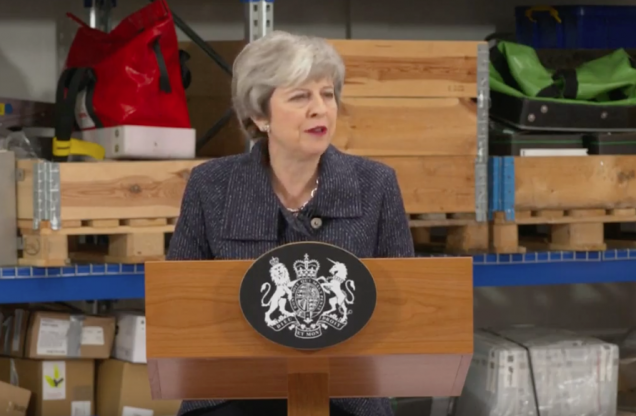
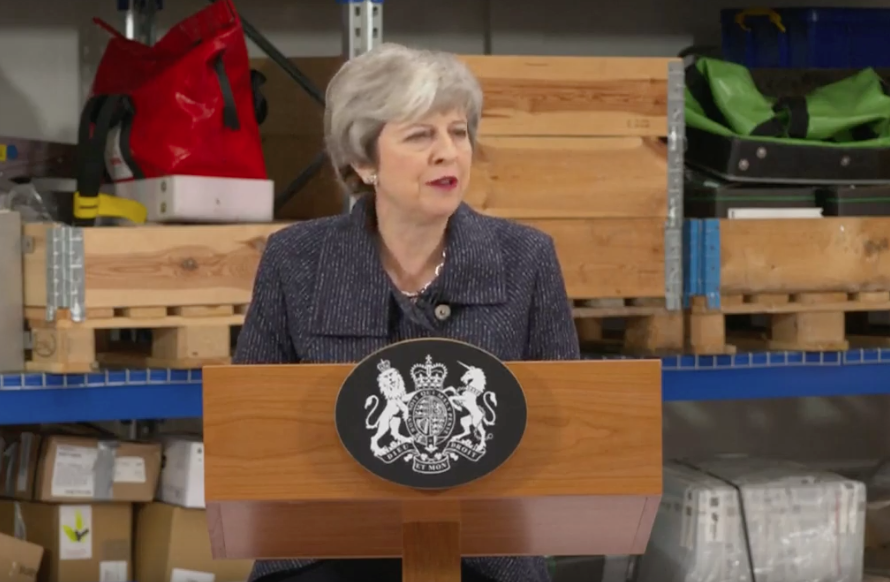
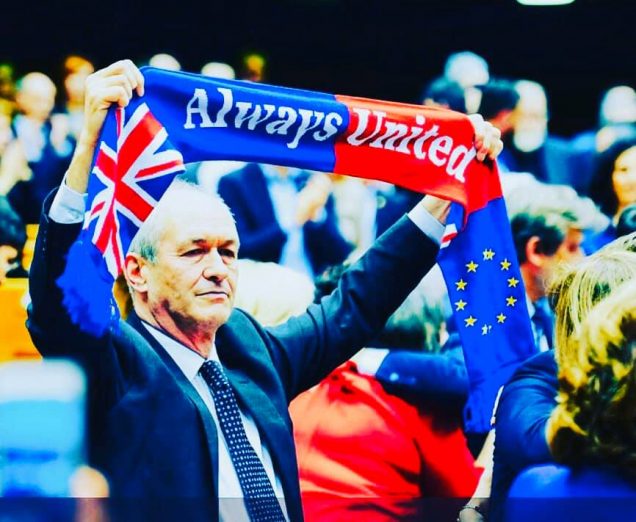
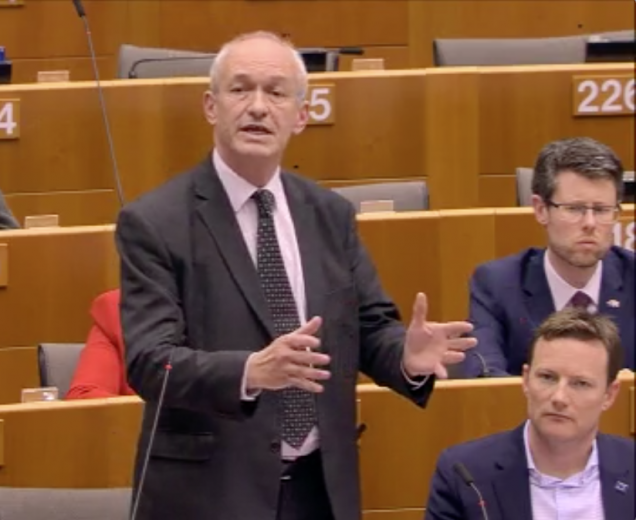
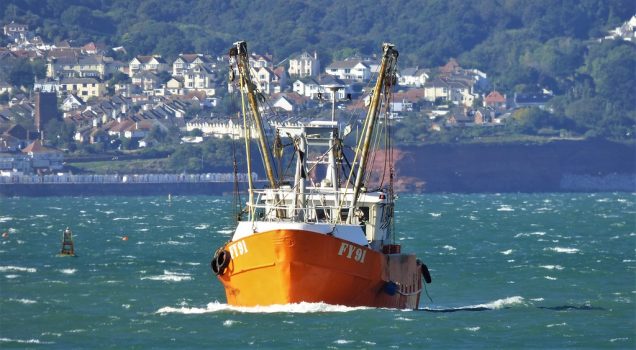
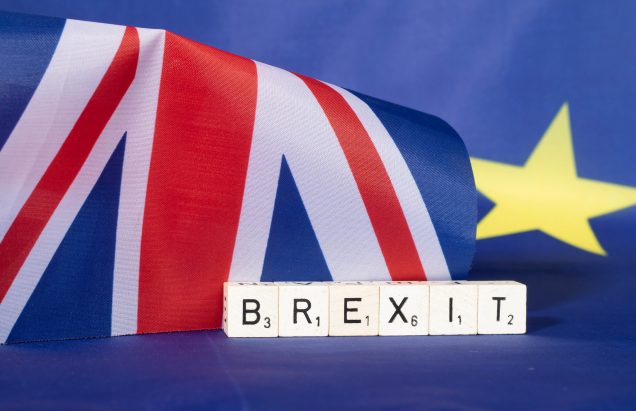
8 Comments